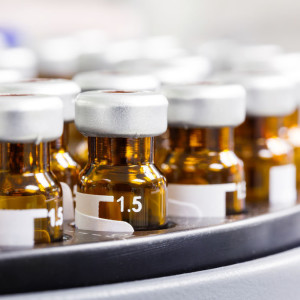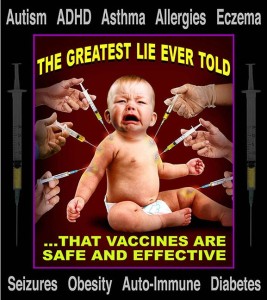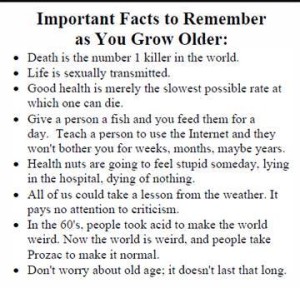
Another major victory for a very dedicated woman!
http://www.theherald.com.au/story/3051020/yancoal-appeal-rejected/?cs=305
Attacking Ourselves: Top Doctors Reveal Vaccines Turn Our Immune System Against Us

The research is hard to ignore, vaccines can trigger autoimmunity with a laundry list of diseases to follow. With harmful and toxic metals as some vaccine ingredients, who is susceptible and which individuals are more at risk?
http://www.greenmedinfo.com/blog/attacking-ourselves-top-doctors-reveal-vaccines-turn-our-immune-system-against-us
The ZENN Car- It's Here Now
ZENN – Zero Emissions No Noise
https://www.youtube.com/embed/Ri2BG2qOvCg?feature=player_detailpage
OK, chuckle time.
The Greatest Lie Ever Told

Vaccines are neither safe nor effective. Even the US government is now admitting vaccinations cause death and injury.
http://womansvibe.com/government-directly-admits-vaccines-cause-injury-and-death-in-table-published-by-hhs/
Anthony Hopkins Philosophy
Roseroot Extract for Depression
Approximately 19 million Americans are diagnosed with depression every year, upping their suicide risk and leaving them vulnerable to related disorders and illnesses. When it comes to mild to moderate depression the risks of conventional antidepressants often don’t offset the benefits, and it may be wiser to seek alternative therapies, such as herbal stimulants, which don’t exhibit such significant side effects. One all-star treatment for depression is roseroot extract, with 3000 years of experience as a European folk medicine used to enhance performance, longevity, energy, and immunity.
Scientists Discover Roseroot Extract Is Nearly As Effective As Prescription Antidepressants
Roseroot extract (Rhodiola rosea) has been shown in several studies to improve depression by stimulating the receptors of neurotransmitters that help control mood, such as dopamine and serotonin. Other studies reveal that it impacts beta-endorphin levels, which help reduce feelings of stress and anxiety.
Dr. Jun J. Mao, associate professor of family medicine, community health and epidemiology at Perelman School of Medicine at the University of Pennsylvania, expanded on this research with the first ever randomized, double-blind, placebo-controlled trial that compared the effects of roseroot extract to the effects of the prescribed antidepressant drug sertraline on mild to moderate depression. The smallscale study—published in the journal Phytomedicine—consisted of 57 adults who exhibited two or more depressive episodes, depressed mood or loss of interest in activities for at least two weeks, and depressive symptoms, such as unexplained weight change, fatigue, and suicidal ideations.
Patients were given standardized roseroot extract, sertraline, or a placebo for 12 weeks, their moods regulated throughout. At the end of the 12 weeks patients reported:
1.9 times the odds of improvement when taking sertraline
1.4 times the odds of improvement when taking roseroot extract
Scientists reported no statistical difference between the two. Furthermore, 63% of patients taking sertraline reported side effects, compared to 30% of patients taking roseroot extract.
“[Roseroot] may be better tolerated than sertraline, which suggests its potential as a treatment alternative for patients who are intolerant to the adverse effects of conventional antidepressants,” the authors conclude.
Experts note that roseroot extract side effects are those typically associated with mild stimulants, such as jitteriness, dry mouth, and dizziness. Do not take roseroot if you are pregnant or breastfeeding.
undergroundhealthreporter.com
Neurosurgeon: Chemtrails Cause Alzheimer’s, Dementia, Parkinson’s, and ALS
Chemtrails. When you hear the word you might instantly correlate it with ‘conspiracy theory,’ but this couldn’t be further from the truth. Just because a neurosurgeon speaks out about them does not constitute it as truth. We don’t base our evidence of somebody observing lines in the sky and instantly deeming them as harmful chemicals designed to increase the rate of human ailments as proof. Although there is much merit in observing a phenomenon and listening to your inner voice/intuition to see if something doesn’t seem right, there is also merit when it comes to factual evidence regarding the chemtrail phenomenon and that is why more people within the mainstream world are choosing to speak out. It’s clear that chemtrails are very different from contrails.
http://yournewswire.com/neurosurgeon-chemtrails-cause-alzheimers-dementia-parkinsons-and-als/#sthash.OUg5vzTQ.dpuf
One Twin Exercises, the Other Doesn’t
Exercise works! If you need proof, try this on for size…
http://well.blogs.nytimes.com/2015/03/04/one-twin-exercises-the-other-doesnt/



